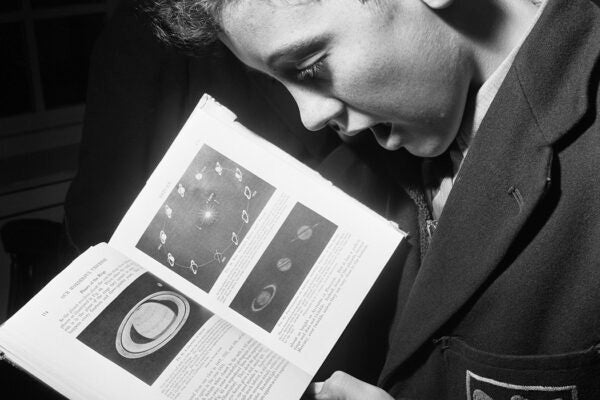Arnold Lobel’s Frog and Toad books are classics of children’s literature. These spare, melancholy stories detail the two friends’ mundane trials, tribulations, and kindnesses. Yet the richness of the Frog and Toad books derives not only from their mood but also from their willingness to challenge readers with philosophical dilemmas.
In a 1996 article for the journal Analysis, philosophers Jeanette Kennett and Michael Smith use the story “Cookies” from Frog and Toad Together to explore what they call the “paradox of self-control.” In the tale, the two friends are eating cookies when Frog finally suggests they stop before they get sick. Even after eating what they promise each other will be the last cookie, the following exchange occurs:
“We must stop eating!” cried Toad as he ate another.
“Yes,” said Frog, reaching for a cookie, “we need will power.”
“What is will power?” asked Toad.
“Will power is trying hard not to do something that you really want to do,” said Frog.
Kennett and Smith note that this formulation of will power “seems to require that our desire not to do what we most want to do is both our strongest desire and not our strongest desire.”
Because the two friends appear to manifest desires in direct opposition to one another, there is a question of whether they are fully rational. Kennett and Smith conclude that they are indeed rational, arguing that Frog and Toad do not, in fact, have a real desire to stop eating cookies. The friends know that they ought to stop eating cookies because to eat too many cookies makes one sick, and it is socially unacceptable to make oneself sick. Their failure, therefore, is one of “orthonomy,” or “the capacity to act in accordance with our normative reasons.” A failure, in other words, to abide by social norms. Yet, by recalling the importance of good health (i.e, not being sick) in the moment of their greatest vulnerability, Frog and Toad open the door for their desire to be healthy to return, which would, in turn, enable them to exercise self-control. Speaking more generally, Kennett and Smith observe that self-control at any given instant becomes more likely if we have trained ourselves to have the right thoughts at the right times—a fail-safe to defuse powerful desires.
In a response to Kennett and Smith, philosopher Alfred R. Mele argues that they misinterpret Lobel’s tale. Since, he argues, it is possible to act on multiple desires at once (i.e., reading a book while drinking iced tea) then we must acknowledge that one can simultaneously have a desire to do something (like eat cookies) and a desire to reduce that dominant desire. Exercises of self-control (pretending that cookies are frog legs, for instance) are intentional, observes Mele. Even though performing such exercises does not guarantee that one will stop doing something one desires to keep doing, the fact that we can enact multiple intentions at once opens the door “to intentional, active exercises of synchronic self-control.” In layman’s terms, self-control in the moment remains possible even if an outsider is unable to perceive it.
For all its humor, this fable of cookie eating taps into a much broader debate over the nature of human willpower and our capacity to control our own desires. The story ends with Frog feeding the remaining cookies to birds and Toad, in a final twist, declaring that he is off to bake a cake.







